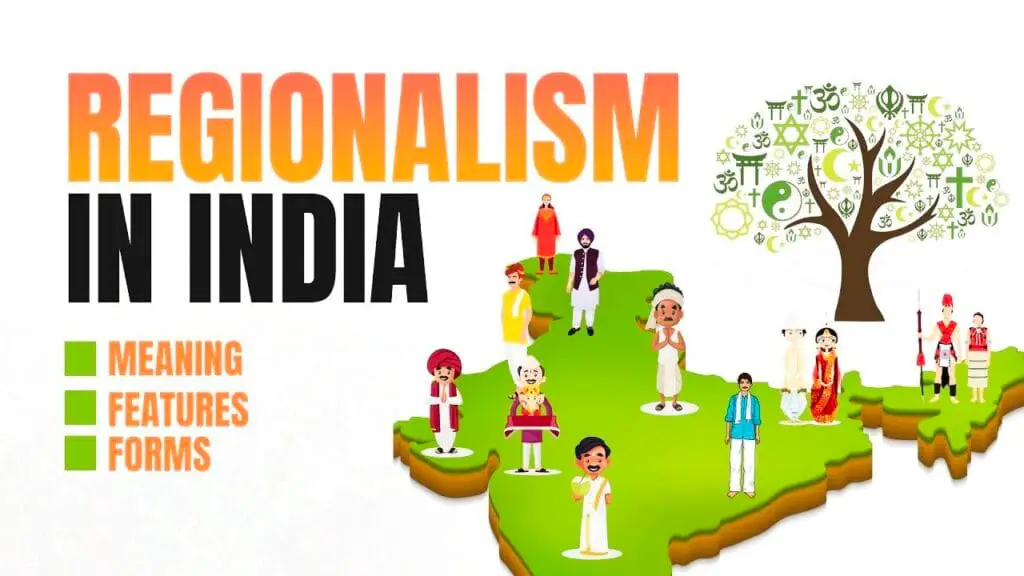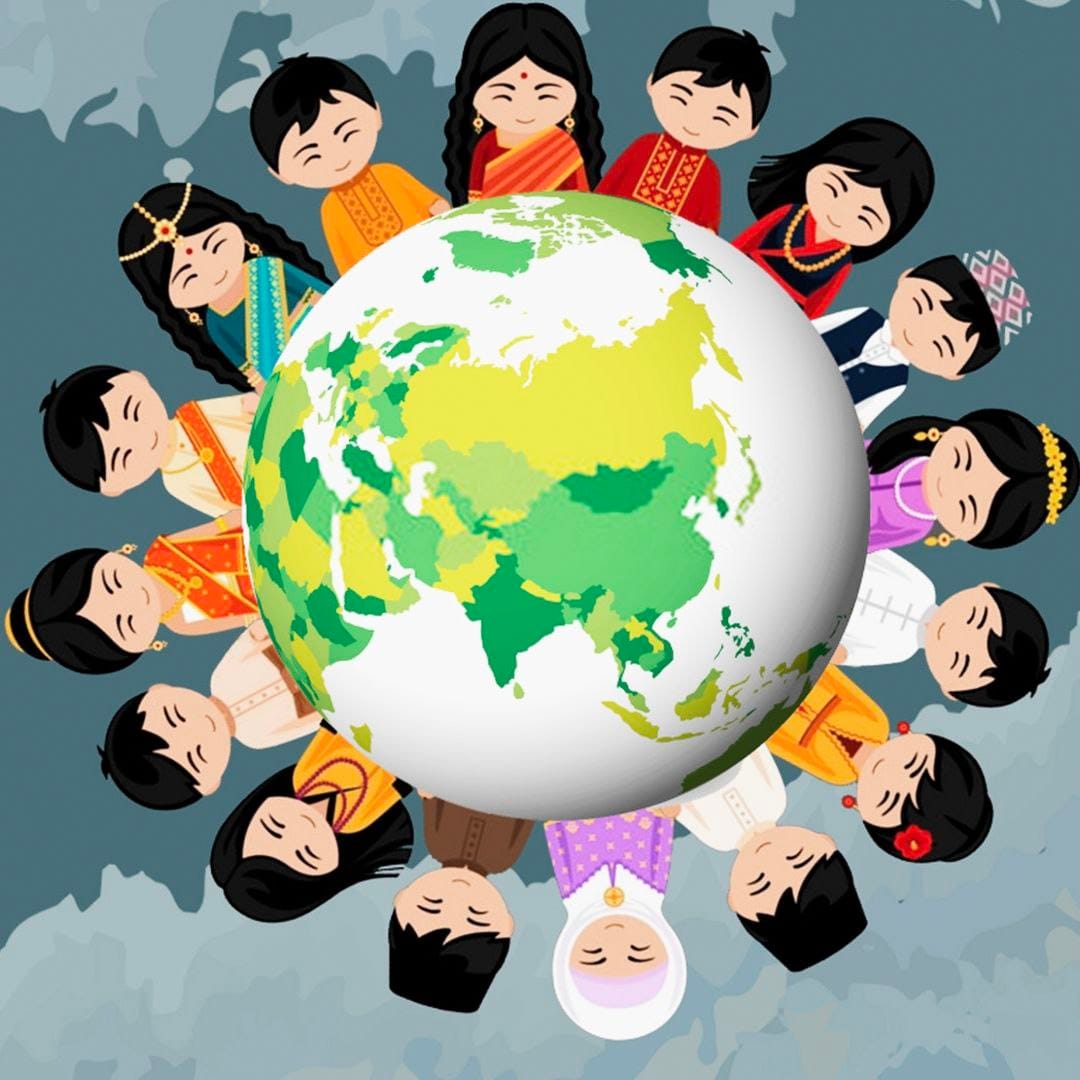Regionalism: Meaning and Features
Meaning of Regionalism
Regionalism is the expression of loyalty, affinity, or political allegiance to a particular region of a country, often driven by shared cultural, ethnic, linguistic, or economic interests. It emphasizes the distinct identity of a specific geographic area, promoting its unique needs and demands over those of the nation as a whole. Regionalism can manifest as a demand for greater autonomy, federal devolution of power, or in some extreme cases, separatist movements.
Regionalism can be both a positive and negative force. It promotes the preservation of regional cultures and identities, but excessive regionalism can threaten national unity and integration, leading to divisions within a country.

Features of Regionalism
- Geographical Identity:
- Regionalism is typically tied to specific geographical areas with defined boundaries, often representing historical or cultural divisions. People living in these areas identify themselves more with the region than the nation.
- Cultural Distinctiveness:
- Regionalism is often rooted in distinct linguistic, cultural, religious, or ethnic identities that differentiate one region from the rest of the country. It promotes the preservation and recognition of these identities.
- Political Autonomy:
- Regionalism may advocate for greater decentralization of power and more autonomy for regional governments. This could involve greater control over local resources, laws, governance, and policymaking.
- Economic Interests:
- Economic disparities between regions can fuel regionalism. Regions that feel economically marginalized or neglected may demand more attention, resources, or even redistribution of wealth from the central government.
- Demand for Separate Statehood:
- In some cases, regionalism can lead to demands for the creation of a new state or even secession from the country. This is driven by the belief that a separate entity would better serve the political, cultural, and economic interests of the region.
- Linguistic and Ethnic Identity:
- Regionalism often revolves around the promotion and protection of linguistic and ethnic identities. For example, regions with distinct languages or dialects often seek recognition and preservation of their linguistic heritage.
- Opposition to Centralization:
- Regionalism often arises as a reaction to perceived over-centralization of power by the national government. Regions may feel that the central government is ignoring their specific needs or imposing policies that are not suited to local conditions.
- Social and Political Movements:
- Regionalism can give rise to strong social and political movements advocating for the rights, culture, and political recognition of the region. These movements may sometimes take the form of political parties representing regional interests.
- Promotion of Regional Development:
- Regionalism often focuses on the development of the region, with a demand for more investment in infrastructure, education, health, and economic growth within the region.
- Regional Disparities:
- Often driven by uneven development, regionalism highlights the disparities between different parts of a country, particularly when some regions feel underdeveloped compared to others.
In summary, regionalism is a significant phenomenon in multi-ethnic, multilingual, and culturally diverse countries. While it can be a force for greater inclusivity and local governance, it can also pose challenges to national unity when it becomes too extreme or separatist in nature.

